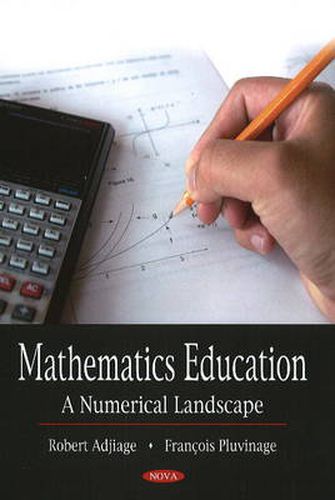Mathematics Education: A Numerical Landscape
Robert Adjiage,Francois Pluvinage

Mathematics Education: A Numerical Landscape
Robert Adjiage,Francois Pluvinage
This book concerns the field of mathematics education. Today, for almost any technology, attaining the most advanced level relies on using digital systems. Therefore, the authors focus on number acquisition and use, emphasise major discussions about related topics, and introduce our personal contribution. They consider three areas: numbers in society, at school, and in the field of education. Modern society needs two kinds of number users: the first has to deal with numbers, the second has to work with numbers. According to the framework for PISA assessment, dealing with numbers concerns every citizen facing situations in which the use of a quantitative…reasoning…would help clarify, formulate or solve a problem. Working with numbers is what a professional (marketing specialist, engineer, physician, artist…) does when he has to cope with numerical theoretical frameworks, or when he collaborates with a mathematician. This brings two types of questioning: what does competence in mathematics mean? What level of achievement is desirable in number-learning to meet either numerical need? The authors examine what is proposed for teaching such a broad subject to 7-to-18-year-olds. They first observe and question the educational system, the designer of curricula, scenarios for teaching, training programmes, and national assessments. Secondly, they question the notions of problem solving and modelling as mere responses to mathematics-teaching issues. The authors then focus on what really happens in a standard classroom, particularly how teachers apply recommendations and directives, and how the generalisation of assessments affects their practice. Three aspects are considered: epistemological, cognitive, and didactical. The authors distinguish four related levels which they have named: numeracy (competence linked to whole numbers), rationacy (competence linked to ratios and rational numbers), algebracy (competence linked to algebra), and functionacy (competence linked to calculus). The cognitive aspect evokes the essential issue of semiotic registers for representing and processing numerical objects, considers the discipline-of-expression aspect of mathematics, and other issues taken into account by numerous researchers, such as process and object. The didactical is devoted to exposing our conceptual framework for teaching numbers and understanding their learning. An experiment in ratio teaching is described and analysed.
This item is not currently in-stock. It can be ordered online and is expected to ship in approx 4 weeks
Our stock data is updated periodically, and availability may change throughout the day for in-demand items. Please call the relevant shop for the most current stock information. Prices are subject to change without notice.
Sign in or become a Readings Member to add this title to a wishlist.


